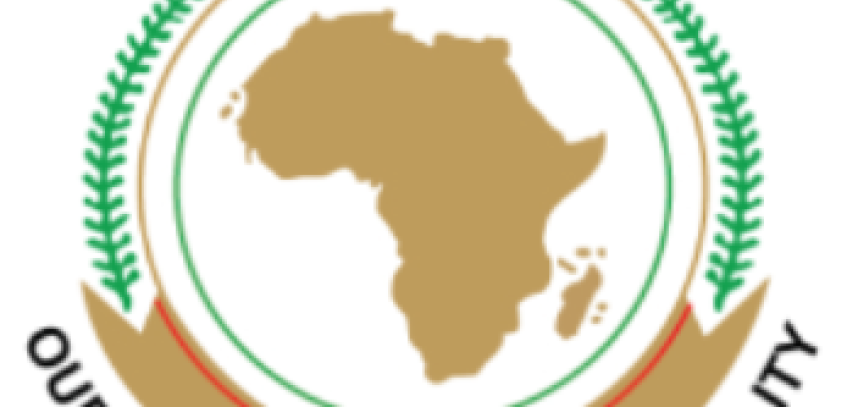The Special Rapporteur on the Rights of Women in Africa, Honourable Commissioner Lucy Asuagbor, on behalf of the African Commission on Human and Peoples’ Rights (the Commission), and on her own behalf, is honoured and privileged to wish women around the world especially, African Women, a happy and joyous International Women’s Day Celebration, today, 8 March 2017. International Women’s Day is a time to reflect on and celebrate women’s achievements and contributions in society; and identifying the progress made and challenges that remain in the advancement of women’s rights across the globe.
This year’s theme for International Women’s Day: ‘Women in the changing World of Work: Planet 50-50 by 2030’ focuses on women in the changing world of work, accelerating gender parity and a more gendered inclusive world that promotes the greatest change for women. The idea behind this year’s theme by the United Nations is to reflect on how to accelerate implementation of Agenda 2030 for the new sustainable development goals, especially goals number 5: achieve gender equality and empower all women and girls; and number 4: ensure inclusive and quality education for all and promote lifelong learning. The theme also focuses on new commitments under the ‘UN Women’s Step It Up Initiative’, and other existing commitments on gender equality, women’s empowerment and women’s human rights. This year’s theme is therefore an imperative campaign initiative for the rapid achievement of gender parity and women's equal participation in all spheres of life.
The realization of these sustainable development goals such as poverty eradication, sustainable economic growth, achievement of gender equality and empowerment of women can only be achieved with women forming a part of the world of work. Women constitute around half of the world’s population, nevertheless because of the unequal opportunity for women at the workplace, a large number of women around the world are unemployed.
With the changing world of work accompanied by growing economies, globalization and technological advancements, empowering women by improving their status in society will not only ensure equal rights for women, but will lead to an advanced socio-economic benefit for all. Moreover, equal education and employment opportunities for women are fundamental to poverty eradication and economic growth. It is important to note that women are equally proficient and are now more than ever, increasingly taking their place in national development and achieving outstanding performances in many spheres.
In Africa, continuing gender inequality and discrimination against women is still a challenge in a number of countries. Over the years, Governments have made significant commitments towards gender equality and women’s empowerment, through the adoption of various regional and international human rights instruments, specially through amongst others, the Protocol to the African Charter on Human and Peoples’ Rights on the Rights of Women in Africa (the Maputo Protocol) and the creation of a Fund for African Women, to accelerate the implementation of all commitments on gender equality and women’s empowerment on the continent. African Heads of State and Government also adopted Agenda 2063, a strategic framework for the socio-economic transformation of the continent over the next 50 years, which highlights as one of its Aspirations “An Africa whose development is people driven, relying on the potential of the African People, particularly its Women and Youth and caring for children”, calling for a full gender equality and empowerment of women and girls in all spheres of life. The theme of this year’s celebrations therefore, perfectly blends with the tremendous work the AU has been doing in the advancement of gender parity and women empowerment in Africa.
For women to constitute a significant portion of this changing world of work, besides promoting equal education and employment opportunities for women, it is imperative that we recognize the new patterns of development and ensure that we address the fundamental gender disparities in relation to wages, governance, and entrepreneurship opportunities amongst others. We must ensure that we break the silence and denounce sexual harassment at the workplace, which is one of the major challenges impeding the advancement of women at the workplace. A more comprehensive gender balance to socio-economic policies and sustainable development goals must also be guaranteed in order to enhance job creation for women.
The Special Rapporteur on the Rights of Women in Africa therefore continues to campaign for gender equality and women’s empowerment in Africa and beyond, and CALLS on all Women irrespective of your nationality, race, traditional belief and cultural values, to be “#BOLD FOR CHANGE” and embrace the evolving world of work and a changing development landscape. Let us take our rightful place in the world of work and join the men to make a difference.
The Special Rapporteur also takes this opportunity to CALL on all States that have not yet done so to ratify, implement and domesticate the Protocol to the African Charter on Human and Peoples’ Rights on the Rights of Women in Africa (Maputo Protocol) and intensify their efforts to ensure the full realization of the rights of women in Africa.
Once again, the Special Rapporteur wishes you all a prosperous International Women’s Day and the very best of 2017.








